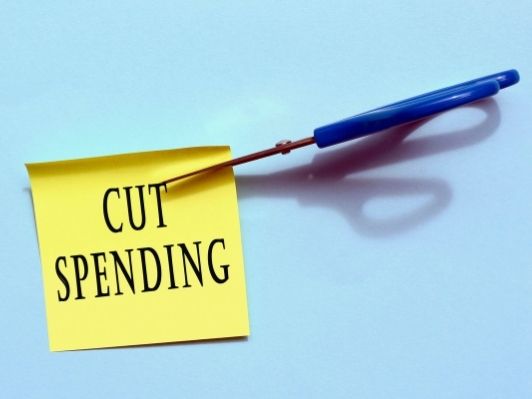Do you know what you spend your money on? You might have a general idea but a lot of us don’t know where all our money goes. You think you can afford to live on your salary but then you keep running out. If you’re using your credit card or taking out short term loans to keep you going, then you’re overspending. Although a short term loan or emergency loan is not a bad thing, but it should be taken out only when necessary.
Why is this and what can we do about it?
Well, the reason we keep overspending is for two reasons:
- We want what we can’t afford, so we borrow the money rather than go without.
- Some of our income goes on paying back what we’ve borrowed. This leaves us with even less money to buy what we want. So, the overspending continues.
Borrowing should always be planned and budgeted for. Loans and credit cards should be used for big purchases like a car or for emergency expenses. If you’re borrowing just to supplement your lifestyle, then this’ll lead you into difficulty. You must do something about this.
The good news is that there are things you can do. Whatever spending habits you’ve got you can change.
Here we’ll give you tips on how to stop spending on unnecessary things and take back full control of your finances. Even if you have no debt, these tips will help you save money.
Table of Contents
1. Set Financial Goals
To help you get on top of your personal finances, set yourself some financial goals. When you’re aiming for something, it’s easier to resist the temptation of buying what you don’t need.
Whatever your goal is, imagine how you’d feel if you achieved it. Get a photo that represents the goal and keep it in your wallet. That way, when you’re about to spend money, you’re reminded to think about whether it’s worth buying.
2. Set a Budget for Everything
Sometimes we avoid writing down everything we spend in case we don’t like the outcome. But it’s better to know where the money’s going than to simply hope we’ve got enough. By facing up to exactly what you spend your money on, and how you spend your money, you can find ways to reduce unnecessary spending.
The key is to put down every penny you spend. Look through past bank statements to remind yourself of things you may have overlooked. You’ll be surprised at just how much you spend on things you don’t need.
3. Subscriptions
Look at what you’ve signed up to that you can cancel. Digital media subscriptions are obvious ones. Look for alternatives like free online music and movie streaming services. Or see if you can find cheaper options.
Try taking up a new hobby that fills your time but that doesn’t cost much to do. That way you won’t need to get all your entertainment from your subscriptions.
4. Food Shopping
By not planning your meals each week you may find you end up taking the easy option and getting takeaways. Cooking at home doesn’t have to be hard or time consuming. Look up cheap and easy recipes, then plan what you’re going to eat each day of the week. You’ll save money and are more likely to eat healthier meals.
5. Avoid Temptation
There are two ways you can stop yourself from spending on things you could do without. One way is to avoid going into shops. If there’s something you must buy, then order just that one item online. By not seeing what’s on sale, you won’t be tempted to buy what you don’t need.
The other way to avoid impulsive spending is to leave your credit cards at home. If you haven’t got the money with you, you can’t spend it. Just because something is reduced doesn’t make it a bargain if you don’t need it. Hold on to your money instead.
6. Recycle
Look around your home at all the ‘stuff’ you have. Everyone has items they don’t use – clothes, furniture, toys, jewellery. Have a look around and sell anything that’s not being used. The extra money can be saved or used to reduce any debts you have.
Don’t forget the charity shops. If you’re in need of something and you like a bargain, these are the places to go. You can find clothes in good condition that cost a lot less than what you’d pay if they were new. You can pick up some great items of furniture if you need them too.
The good thing about recycling is that you’re helping the planet at the same time.
Final Words
Keeping on top of your finances doesn’t have to be stressful. By taking a good look at where all your money goes, you can make positive changes that will help. Being in control of your finances helps reduce financial stress, and we could all do with less stress in our lives.
Disclaimer: Please note, we are not providing financial advice, these are just tips for informational purposes.

